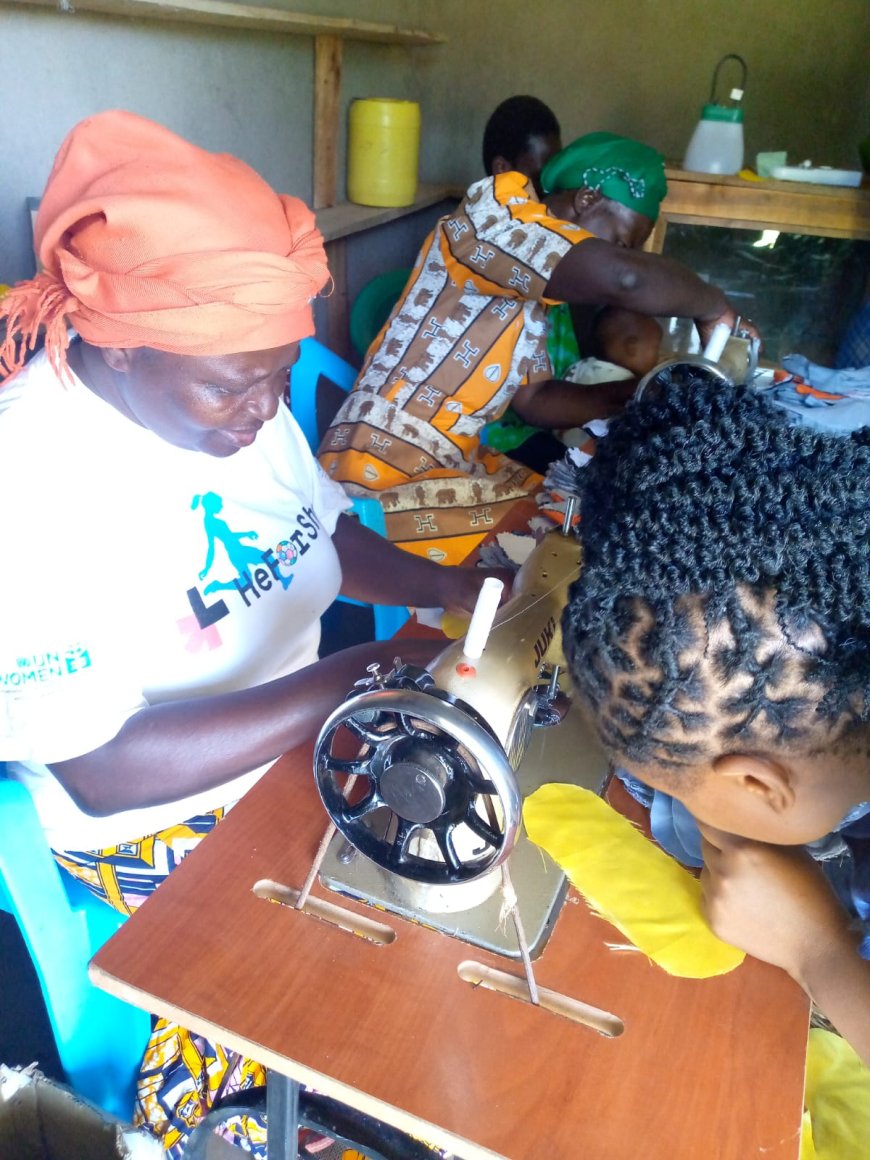Overcoming Menstrual Challenges through Reusable Pads
International Menstrual Hygiene Day on 28th May this year, it is evident that every individual must recognize the urgent need for multi-sectoral action to tackle this challenge.

By Jael Sada.
Until she turned 13, life was smooth for Maria Dzame. She excelled in school and had a close group of friends. However, everything changed when she experienced her first menstrual cycle.
Living in Adimaye, a remote village in Kilifi County, Maria faced significant challenges managing her periods. Unaware of menstrual hygiene, she often wore a sanitary pad for too long, leading to serious health issues.
"I live in a remote village where access to sanitary towels is a hurdle. Whenever I am on menses, I am forced to use a pad for long periods due to its scarcity," she said.
Whenever she visits the nearest town, Chakama, which is more than 100 kilometers from her home, Maria cannot buy enough pads to last her long due to her family's financial constraints.
Like many women in the village, her mother relied on improvised solutions, often using old clothes that were neither sanitary nor comfortable. Maria had no choice but to follow suit.
"After using the old clothes for the first time, I started feeling discomfort and irritation, which I initially dismissed as normal. However, over time, the situation worsened. I experienced rashes, itching, and a constant feeling of dampness," added Maria.
The lack of proper ventilation and the constant moisture created a breeding ground for bacteria, causing her immense pain and embarrassment. Maria's self-esteem dropped, and so did her performance in school. She became increasingly self-conscious and withdrew from her social circles.
Maria's story is one of many, highlighting the dire circumstances that countless women and girls face across remote regions like Adimaye in Kilifi County.
May 28, World Menstrual Hygiene Day
This year's International Menstrual Hygiene Day, themed Together for a Period-Friendly World, highlighted the need for various stakeholders to unite against menstrual stigma and ensure every woman can access menstrual products.
Magharibi Frontier Development Corporation (MFDC) is among the community-based organizations in Western Kenya that have taken significant steps in addressing menstrual issues.
Founded to empower girls and women in disadvantaged areas, MFDC sews washable, reusable pads and distributes them freely to those in need. The organization believes no girl should miss school or suffer health-wise for lack of menstrual products.
"Growing up in a poor background where meeting basic needs was a challenge, having a pad was incredibly hard. I went through a tough time during my periods. Despite this, I overcame these difficulties and thought of a way to help other girls who might be experiencing what I went through. I came up with the idea of sewing washable sanitary pads. We supply these pads to schoolgirls and teach them how to use them. This initiative has helped women and school girls access sanitary pads," said Metrine Mapesa, the Women's leader and CBO's chairperson.
MFDC currently serves the entire Kakamega and parts of Busia County and hopes to expand to cover the vast Western Kenya region. The organization has women who sew high-quality, washable menstrual pads. These pads are designed to be durable, comfortable, and easy to clean, ensuring long-term usability.
"I manage a group of 30 women from the local community who volunteer their time for this job. We first received generous support to buy sewing machines and materials and we learned how to sew the reusable pads. We normally reach out to the targeted schools and then produce pads as a pet number of students in need, we then arrange for distribution to schools and groups of women," she added.
Education and Training
Alongside distributing pads, MFDC runs educational programs to teach girls and women about menstrual health and hygiene. These sessions cover how to use the pads, the importance of changing them regularly and maintaining personal hygiene during menstruation.
The organization also works closely with community health workers and local leaders to identify needy girls and provide ongoing support and resources.
According to Jacinta Angotse, a reproductive health coordinator at the Kakamega General and Referral Hospital, menstrual hygiene is essential in preventing infections that result from poor hygiene practices during menstruation, such as sores in the genital area.
"To maintain menstrual hygiene, it is advised to regularly change sanitary towels, clean the genital area with water and mild unscented soap, and wear breathable cotton underwear to avoid irritation. It is also advised to bathe regularly and wash reusable sanitary towels properly, ensuring they are fully dried before reusing them," she said.
As the world joined hands to commemorate International Menstrual Hygiene Day on 28th May this year, it is evident that every individual must recognize the urgent need for multi-sectoral action to tackle this challenge.







